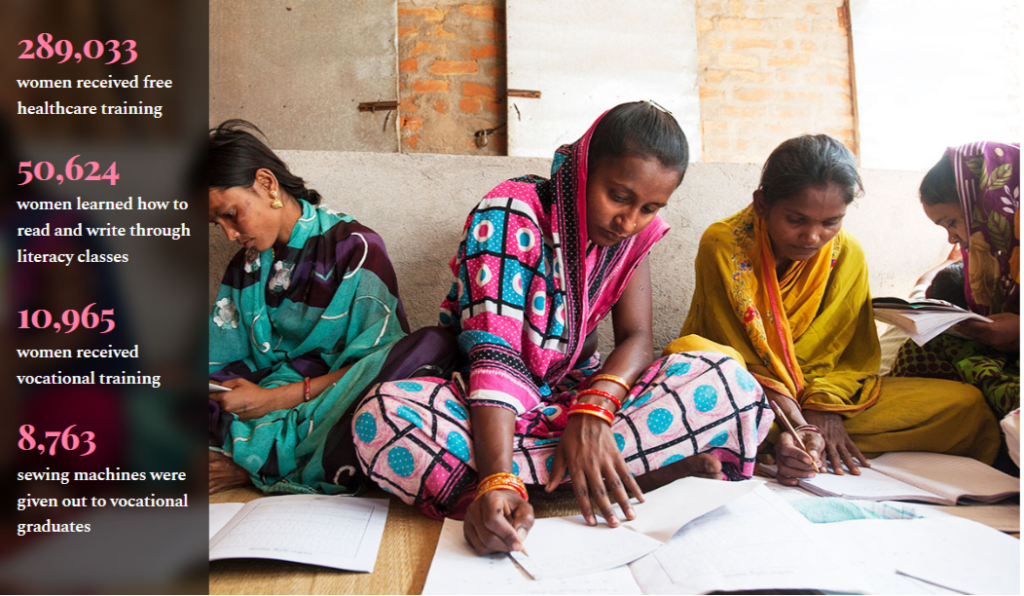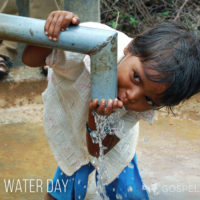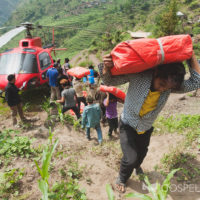Gospel for Asia (GFA World) Special Report: Hope to Overcome the Challenges of Widowhood
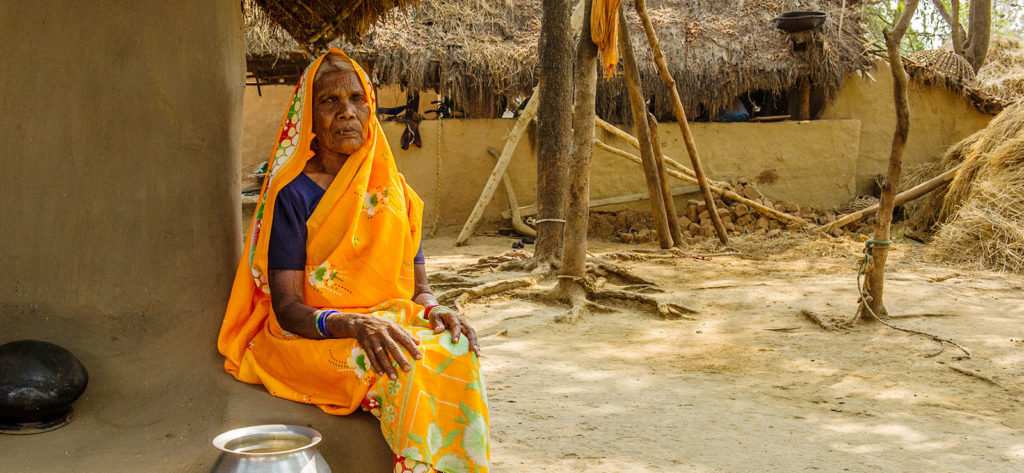
![]() Written By Ken Walker of InChrist Communications
Written By Ken Walker of InChrist Communications
Accounts of the humiliations, insults and indignations suffered by widows worldwide would make anyone cringe.
Gulika, a widow in Asia, experienced helplessness after the people in her village turned their backs on her after her husband’s death.
A woman in Nigeria was harassed by her brother-in-law asking for documents of her house before her husband’s body even left for the funeral home—and then insisted she had to leave.
Another Nigerian woman’s husband lay in a hospital bed when her sister-in-law demanded a huge amount of money from their bank account. When the wife refused, her in-law swore she would regret it.
“Three days after, my husband died, his family descended on me, took his cars away and emptied the house,” the widow shared.
In connection with last year’s International Widows Day, CNN spotlighted the cases of seven widows, ranging from a woman in Nepal to a widow in India to the spouse of a U.S. serviceman killed 12 years ago in Iraq. Their stories varied, but they faced the same plight: difficulties with grief and loneliness, forms of ostracism, financial struggles and hopelessness.
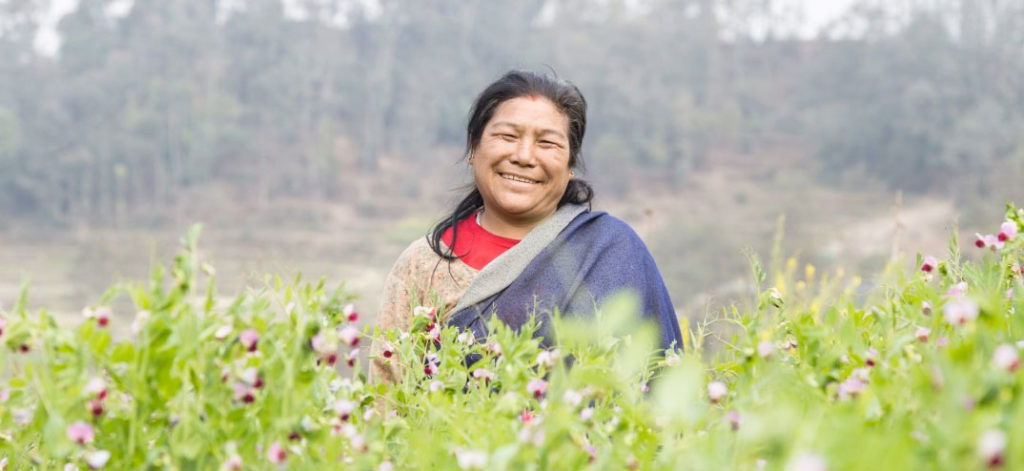
The widow in Nepal, Santu Kamari Maharjan, then 55, had lost her husband to kidney failure years before. With young children to support, she had to work in people’s fields to clothe and feed them. (She had to sell her own field to pay for her husband’s medical treatment.) Her sisters-in-law would taunt her. As difficult as that was, then a serious earthquake in 2015 left her with no income—until the nonprofit Women for Human Rights helped her and 14 other women to build a bamboo shelter to start an agriculture business.
Grace Njeri Mwichigi became a widow after her husband was killed during tribal clashes in Kenya in 2007. The following months brought stress, confusion and fear, with much of the neglect and humiliation coming from family members. Purita Carlos of the Philippines lost her husband to lung cancer, which meant her fourth-grade son had to stop attending school while they stayed in Manila so she could learn how to earn a living.
“Being a widow is not easy,” Carlos told CNN. “It is very sad, and the pain of missing your husband is always there. I don’t want to go through the same experience again. That is why I would not ever remarry. It is enough that I have my son.”
In other media coverage, headlines alone give an indication of the situation facing so many widows:
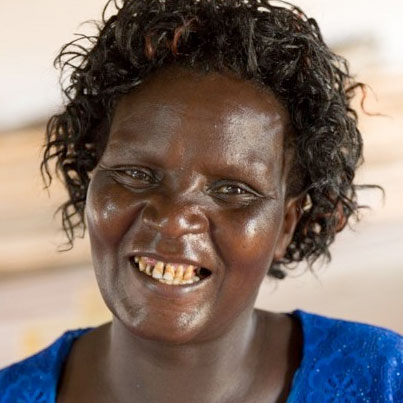
Grace Njeri Mwichigi became a widow after her husband was killed during tribal clashes in Kenya in 2007. The following months brought stress, confusion and fear, with much of the neglect and humiliation coming from family members. Purita Carlos of the Philippines lost her husband to lung cancer, which meant her fourth-grade son had to stop attending school while they stayed in Manila so she could learn how to earn a living.
“Being a widow is not easy,” Carlos told CNN. “It is very sad, and the pain of missing your husband is always there. I don’t want to go through the same experience again. That is why I would not ever remarry. It is enough that I have my son.”
In other media coverage, headlines alone give an indication of the situation facing so many widows:
Afghan widows ‘would rather die’
Agonies of widows hit by
harsh Nigerian traditions
USA: Social Security underpays
thousands of widows and widowers
Stories of survival: Widows of
India’s farmer suicides
Kenya: Where becoming a widow is
the worst thing that can happen to you
Widows Are at the Bottom of the Pile
Of the estimated 285 million widows in the developing world, more than 115 million live in abject poverty
. Eighty six million have suffered physical abuse, according to Cherie Blair, president of the UK-based Loomba Foundation, established in 1997 to empower widows and educate their children. In addition, 1.5 million children whose mothers have been widowed will die before they turn 5 years old. Considering the average widow has three children and six other family members, the wider impact affects more than a billion people, about one-seventh of the world’s population.

“Their plight is one of the most important, yet under-reported, human-rights issues facing the world today,” says Blair. “Much has been made, and rightly so, of gender inequality, but widows have truly been at the bottom of the pile—visible and invisible—for too long. For many women, becoming a widow does not just mean the heartache of losing a husband, but often losing everything else as well.”
Gospel for Asia (GFA) reported on one widow named Gulika and her plight.
While Gulika didn’t live an extravagant lifestyle, her husband, Manan, earned an adequate income working as a tailor. That all changed the day Manan hurried across some railroad tracks, unaware of the train just around the bend.
The sorrow of losing her husband was compounded by the reaction of others in her village in Asia. Believing Gulika was cursed, many feared that even passing by her on the street could bring them bad luck. Not surprisingly, Gulika fell into emotional despair. Still, she had to uphold her duties as a daughter-in-law, including retrieving water for the family. The nearest source was an old well a third of a mile walk from home.
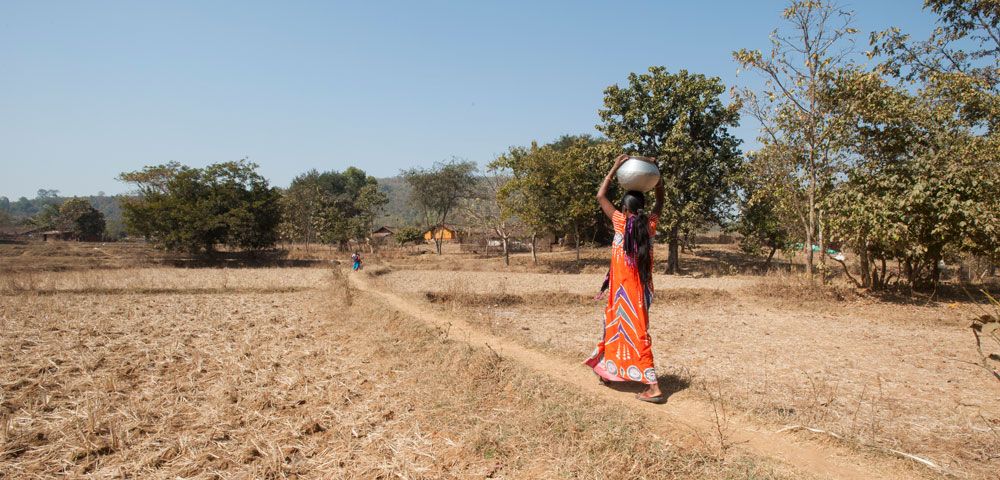
Collecting water was a grueling chore, and not just because of the lengthy walk. Women and girls feared going out alone because of the potential danger of men taking advantage of their vulnerability. Some days, Gulika faced harassment from her neighbors, and she didn’t always come home with enough water.
Gulika’s story has a happy ending: A GFA-supported pastor arranged for a new water well to be drilled in front of her home.
Too often, however, widows don’t see relief from their suffering. So many women in various parts of the world have lost their husbands that the term “island of widows” has been applied to locations in Nicaragua, Sri Lanka and India.
Some of these women’s husbands have died from unknown chronic kidney disease (CKDu). First diagnosed among sugarcane workers in Chichigalapa, Nicaragua, it more recently spread to a coastal town in Andhra Pradesh, India. In a village of less than 3,000 people, at least 126 women have become widows by CKDu ailments, which have stricken farmers, coconut grove workers and fishermen.
There are other concentrations of widows linked to a variety of causes. The city of Vrindavan in northern India, known as a holy city because of its numerous temples, has been labeled “the city of widows.” That’s because an estimated 15,000 to 20,000 widows live in the area, almost one-fourth or one-third of the city’s population of 63,000.
The Sunderbans, a cluster of islands stretching from India to Bangladesh, contain several villages that are home to “Tiger Widows,” women whose spouses have been killed by tigers.
“They think we are evil,” said one woman who lost her husband to a wild animal. “People blame us for the death of our husbands.”

A Day for Widows Raises Awareness
In response to stories like these, the Loomba Foundation organized the first International Widows Day in 2005 to raise awareness of the problems of widowhood. The foundation selected June 23 for the observance because on that day in 1954 the mother of the organization’s founder, Lord Loomba, became a widow.
By the sixth year, 10 nations held observances. In December 2010, the United Nations General Assembly formally adopted June 23 as International Widows Day, calling on member states, the UN system and other organizations to give special attention to the situation of widows and their children.

Considering the average widow has three children and six other family members, the wider impact affects more than a billion people, about one-seventh of the world’s population.
A series of reports tied to the day give further evidence of the difficulties facing widows:
In 2001, the UN had issued a report in which it said there is no group affected more by the “sin of omission” than widows: “They are painfully absent from the statistics of many developing countries, and they are rarely mentioned in the multitude of reports on women’s poverty, development, health or human rights published in the last 25 years.”
The UN says widows in many countries often confront denial of inheritance, land rights and other forms of abuse; widows can be evicted from their homes and abused or even killed, sometimes by family members.
“In many countries, a woman’s social status is inextricably linked to her husband’s, so that when her husband dies, a woman no longer has a place in society,” stated the organization’s 2018 report on International Widows Day. “To regain social status, widows are expected to marry one of their husband’s male relatives, sometimes unwillingly. For many, the loss of a husband is only the first trauma in a long-term ordeal.
“In many countries, widowhood is stigmatized and seen as a source of shame. Widows are thought to be cursed in some cultures and are even associated with witchcraft. Such misconceptions can lead to widows being ostracized, abused and worse.”

A report released by the Loomba Foundation warned that the mistreatment of widows and women who have lost their partners produces systemic problems for societies. Unless governing powers actively safeguard the well-being of these women and their children, extreme beliefs and behaviors persist. In some nations, people commonly believe that widows caused their husbands’ deaths because of their own misdeeds in a previous life. Some cultures practice “cleansing,” where a widow is forced to have sexual intercourse with a man after her husband’s death to release her husband’s spirit.
The report explains the disturbing impact of such beliefs and practices: “Most of the most puzzling influences affecting widows are not examined by the societies that practice them, and without questioning them they remain secret, or in other cases where they are acknowledged they exist, through their normalcy, no one acknowledges the practices cause harm, therefore the practices exist in a kind of private realm nonetheless.
“Perhaps the most far reaching impact of widows’ insecurity is the impact this has on women and families to choose to focus most of their resources on the male members of the family. This means that boys get more health care and education than girls. Boys get this focus because women’s rights are not acknowledged in many societies so that women depend on men for economic and legal security.”
Watch the story of Netramani in this excerpt from Gospel for Asia’s documentary “Veil of Tears”, a film that reveals the desperate plight of women in Asia.
A Hidden Plight
If widows were gathered into one geographic location, they would make up the fourth-largest nation on earth. Yet, according to the Loomba Foundation, many people remain unfamiliar with reports about the situation facing widows, even though much of the research and analysis is not new. That’s because the evidence hasn’t moved beyond obscure books, academic journals and findings by international organizations. In addition to individual cases of extreme abuse, the Foundation argues, the structural causes of deprivation are “disturbing,” because these wider impacts affect society as a whole.
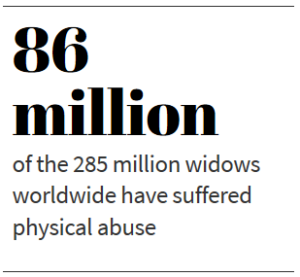 “Deprivation faced by widows therefore extends its destructive influence deep into the rest of society, and can be seen at work across large parts of the world,” the organization stated in its 2015 Global Widows Report. “Widows’ deprivation is therefore not simply about identifying one more category of people to be added to the poverty policy list. This latter point will obviously be of interest to governments, given that they rarely act because there is a moral need to do so—action happens because it helps achieve some other already prioritized objective.”
“Deprivation faced by widows therefore extends its destructive influence deep into the rest of society, and can be seen at work across large parts of the world,” the organization stated in its 2015 Global Widows Report. “Widows’ deprivation is therefore not simply about identifying one more category of people to be added to the poverty policy list. This latter point will obviously be of interest to governments, given that they rarely act because there is a moral need to do so—action happens because it helps achieve some other already prioritized objective.”
Many governments could lessen pressure on widows by removing limits on women’s economic condition. Not only do widows often face the loss of land, income and poverty, but as females, many of them lack basic rights.
A 2016 report from the World Bank Group showed that 90 percent of 173 nations have at least one law limiting women’s economic participation, including constraints on their ability to inherit or own land.
In response to that statistic, UN Women wrote in a 2017 statement, “Repealing these discriminatory laws is not only ethical, it is a mandate of the [UN’s] Sustainable Development Goals; the first target of Goal 5 is to ‘end all forms of discrimination against women and girls everywhere.’ ”

UN Women points out the need to “undertake reforms to give women equal rights to economic resources, as well as access to ownership and control over land and other forms of property, financial services, inheritance and other natural resources, in accordance with national laws. Action on these could impact the lives of millions of widows who are currently dependent on their husbands for their livelihoods.”
The Loomba Foundation says that in significant portions of many developing nations, prevailing social norms and lack of a social safety net mean remarriage is in effect mandatory because single women’s existence is not accepted. This means many widowed women remain “hidden” and not recorded in official statistics.
Still, research has uncovered how serious conditions can become, especially in conflict-torn areas. In Rwanda, at least 13 percent of females are widows, with half of all husbands slaughtered during the genocide of the 1990s. In the Democratic Republic of Congo, sustained warfare left some areas with a widowhood rate as high as 40 percent. In Afghanistan, the United Nations Fund for Women has reported as many as 2 million war widows, well above 20 percent of the corresponding female population.
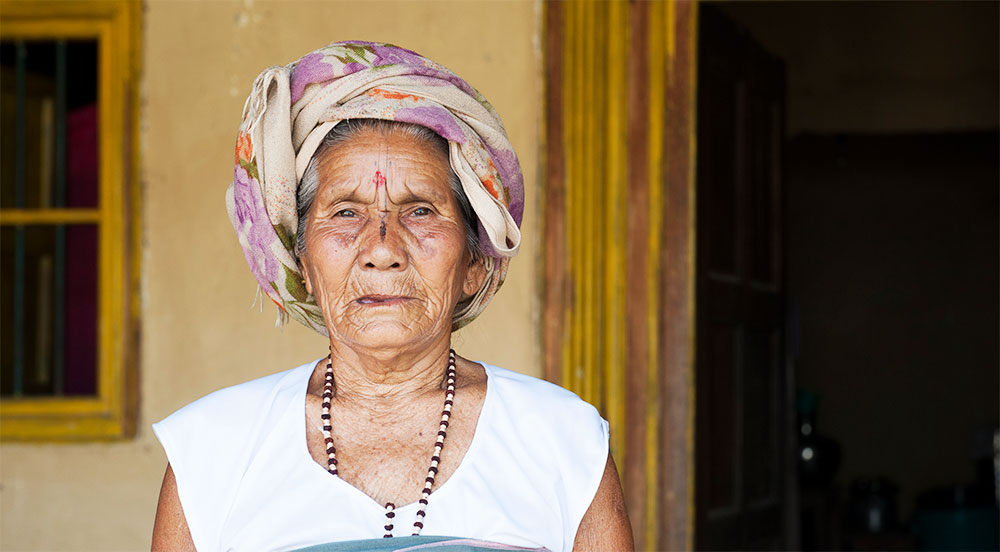
“However, the countries with the highest percentage of widows among their female maritage populations are in Europe, where Ukraine leads with a rate of 19.2 percent,” the report says. “The Czech Republic has a rate of 13.6 percent, similar to post-genocide Rwanda, France has 12.2 percent. … Without further research on the living conditions of widows in under-studied countries, the widows’ issue will remain hidden in what are currently heavily aggregated poverty statistics.”
Fighting Tradition
The problem can’t be laid solely at government’s doorstep. Strong cultural traditions, customs and superstitions make turning back problems a long-term challenge. That is one reason why UN Women established the Fund for Gender Equality, a global grant-making body dedicated to economic and political empowerment for women. The fund provides both technical and financial support to innovative initiatives.
Since 2009, the fund has given grants totaling $64 million to 120 programs in 80 countries; in 2015 it awarded $7.3 million in grants to two dozen programs that are scheduled to be implemented by this year in six regions of the world. They will reach an estimated 325,000 beneficiaries—45 percent from low-income countries. Thus far, the agency says it has helped 23,000 women increase their incomes and another 3,000 gain leadership positions.
Despite such initiatives, neither government nor non-governmental organizations can easily overcome cultural habits. In 1961, India passed a law against requiring a woman’s family from presenting her husband with a huge financial gift, known as a dowry. Yet, more than 50 years later, dowries are responsible for 80 percent of the outstanding bank loans in the South Asian country. As just one example, “Veil of Tears,” a documentary by Gospel for Asia (GFA), interviewed one woman whose father was still making payments on a dowry loan years after her marriage.
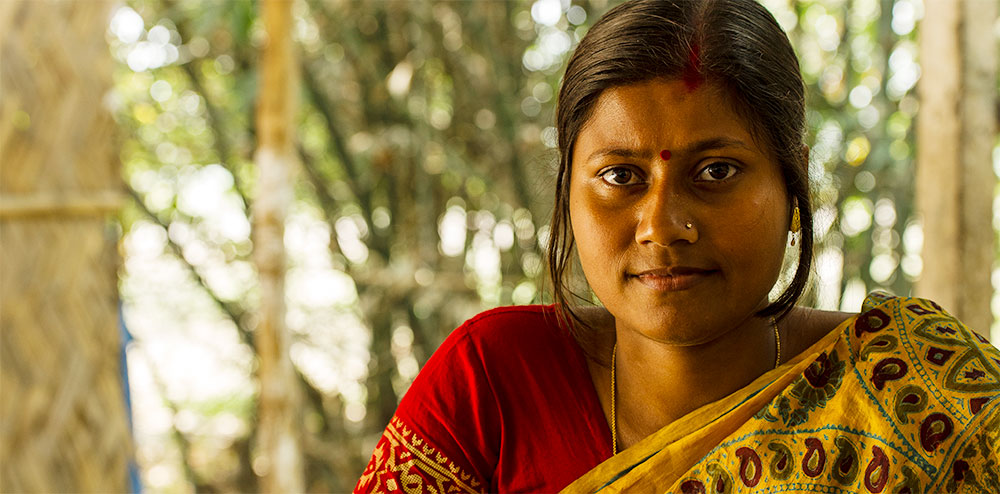
Because so many of these women lack an education or job training, some are often forced to work in low-skilled, backbreaking labor jobs paying the equivalent to US$1.50 a day. With 80 percent of India’s 1.2 billion people living in villages and rural areas, it is extremely difficult to overcome the superstitions and traditions that keep women in subservient conditions.
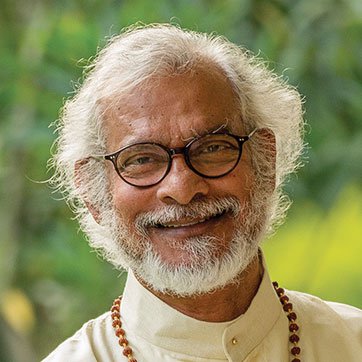
“For millions of widows in Asia, life is incredibly difficult,” says Dr. K.P. Yohannan, founder and director of Gospel for Asia (GFA). “Many are forced into begging or prostitution to survive. There are 46 million widows on the streets and in slums. There are stories of thousands of widows committing suicide because they have no hope.”
Another widow whose story was featured in “Veil of Tears” faced rejection from her husband’s family after he died. Her nephews refused to give her food, forcing her to beg from passing strangers. Once, when she got sick and suffered from diarrhea for two days, no one would even approach her. Members of a GFA-supported Women’s Fellowship took her to the hospital for treatment, provided her food and found her a home. Most of all, they became a family.
Grassroots Aid
Such caring action demonstrates one way to address widows’ situation: at the grassroots level. This is what Gospel for Asia (GFA) does through initiatives such as sewing classes, providing sewing machines and training in skills like candle-making and basket-weaving. Much of this outreach is conducted by Sisters of Compassion (women who are specially trained to care for marginalized groups), leaders of Women’s Fellowship groups and pastors’ wives. As women, they are more readily received into women’s homes in the segregated society.
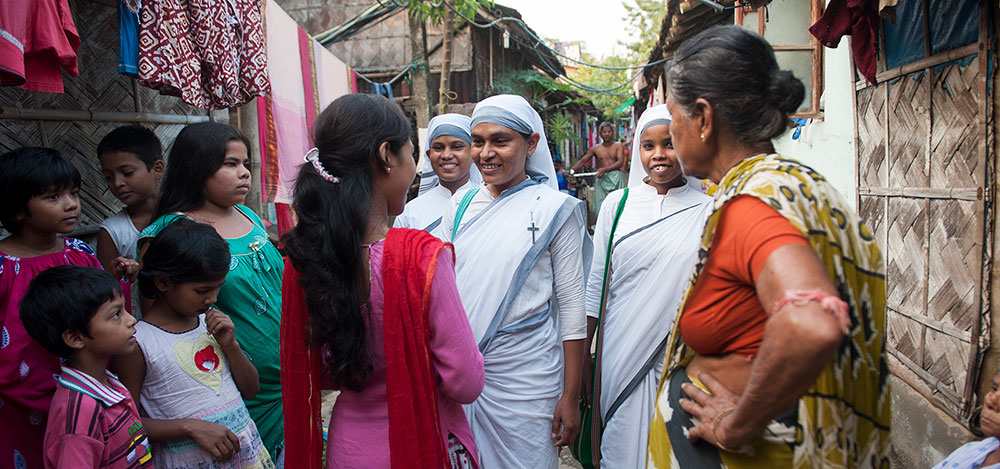
GFA-supported pastors and workers often help organize events to assist and encourage widows, too. For example, on or soon after last year’s International Widows Day, GFA-supported workers in many different regions distributed numerous sewing machines, goats, piglets, hygiene supplies, mosquito nets and other goods to help improve widows’ lives. They also offered encouragement and reminded them, “In the sight of God our Father, pure and blameless religion is helping the orphans and widows in their need” (see James 1:27).
That stirred reactions like one from Madhuri, a 35-year-old who is the only bread-earner for her children.
“I go house to house in search of work,” she said. “The piglet I received from you, I will rear nicely and hope it will [provide] a great income for my family. I am very thankful to you.”
Damini, a widow with five children, said, “I am very happy to get a piglet from the church. I never expected this type of help from the church, but I am lucky to receive the piglet.”
“In the sight of God our Father, pure and blameless religion is helping the orphans and widows in their need.” —James 1:27
In another area, a GFA-supported Women’s Fellowship gave sewing machines to 30 women.
“After my husband died, I was alone doing work in the tea garden and supporting my children,” said Upada, one of the recipients. “I am finding it so difficult to manage our family, but today I am so happy that the church has given me this gift. I believe that this sewing machine will greatly help our family.”
Another woman, Kanan, said, “After my husband’s death, there was no one to help me. I have three children and they are very small. The eldest child is going to school. I was finding life so difficult, but God took care of us and met our needs. … Through this sewing machine, I will try my best to earn money and support my children’s schooling and our family.”
When a church in another district gave 50 widows each a goat, it brought waves of gratitude. Lajita, one of the women who received a goat, told of her husband dying four years earlier because of asthma.
“I have three children who are going to school. I worked as a daily laborer in others’ fields,” she said. “Now, I will rear this goat at home, and she will produce milk. I hope my family’s condition will become better through this goat.”
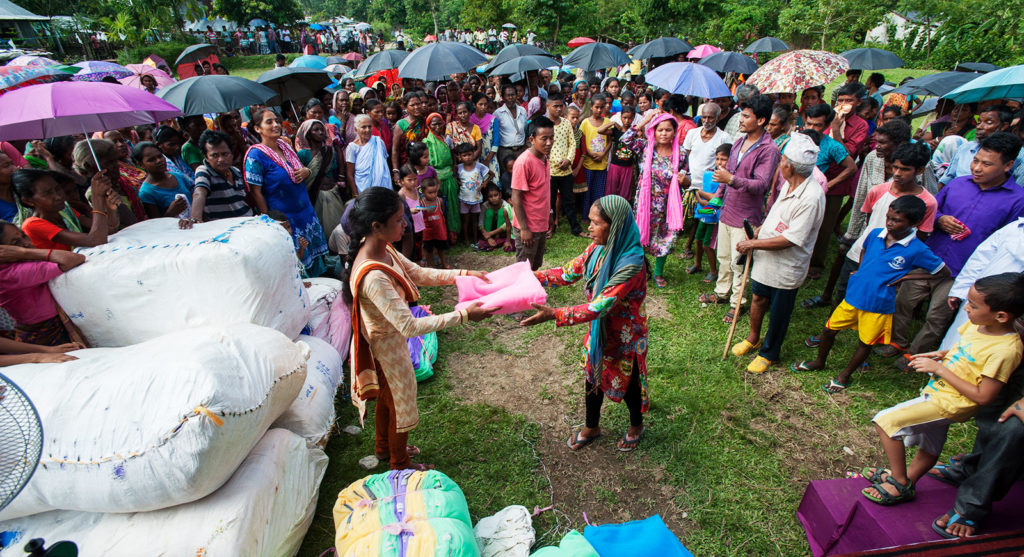
Baijanti added, “My husband passed away some eight years ago. I stay with my children. We have no income-generating source, and this goat is going to be a great help for my living.”
An event in Nepal for International Women’s Day in 2017 prompted similar reactions. Thirteen churches organized a women’s conference, during which they provided pressure cookers to 60 widows.
A guest speaker, who had been a widow since age 15, distributed the gifts and encouraged participants.
“Being a widow, it is hard to be alone and at home in the society,” she said. “Today, many widows are abused by the family and the society. Therefore, I came forward to raise my voice and help them.”
American Widows Face Challenges
Even in the United States, widows don’t get a pass on life’s challenges. After Artis Henderson’s husband, Miles, died in November 2006 when his Apache helicopter crashed in Iraq, she spent the first year overwhelmed by grief. Without experiencing this kind of sudden tragedy, it’s hard for someone to know how difficult it is to cope when “everything in the world shifts,” she told CNN.

(Photo credit Artis Henderson via CNN.com)
“I always remember so clearly, this woman—another widow who was a little further, maybe six months ahead of me in the process—saying to me, ‘You will be disappointed to find out what happens after the first year,’” Henderson said. “And I remember saying, ‘Well, what happens?’ And she said, ‘There’s another year.’”
Other widows report similar grief. At age 59, Ginny McKinney was out shopping with her husband, Dan, for a travel trailer for early retirement when he suddenly dropped dead from a heart attack at age 62.
“I took off for three months, driving a circle around Colorado,” McKinney told the New York Times. “I went to places in the wilderness and on the top of mountains, where I could stand outside and scream at the sky, and scream at God for taking my man. And scream at him for leaving me.”
If the grief isn’t enough, what elderly widows may discover later can also inflict pain. In early 2018, an audit report from the Social Security Administration’s (SSA) inspector general’s office found the agency had underpaid nearly $132 million to more than 9,200 widows and widowers age 70 or older.
The issue stemmed from a budget bill in 2015, when Congress curtailed a strategy where one spouse could suspend a monthly benefit to allow the other spouse’s benefits to increase as long as the second delayed drawing theirs. However, it still allows a widow to claim survivor benefits and delay applying for her own. The SSA failed to inform widows and widowers to consider this option. The inspector general identified 13,555 people who were entitled to claim such benefits; a random sample showed that 82 percent could have drawn a higher monthly benefit if they claimed survivor benefits and held off drawing their own retirement.
I went to places in the wilderness and on the top of mountains, where I could stand outside and scream at the sky, and scream at God for taking my man. And scream at him for leaving me.
However, the situation for widows in other parts of the world remains even more dire. For example, in a 2015 story, the India Times reported the majority of Indian widows are deprived of their inheritance rights, especially if they are childless or have only daughters. This happens despite a 1969 law that made women eligible to inherit equally with men.
Among other problems, widows in Asia may face:
- Prohibition of remarriage
- Being forced to follow certain mourning rites
- Becoming victims of violence, much of it stemming from common accusations that they caused their husband’s death
- Economic hardships
Sharing Hope
Given this situation, Yohannan also believes the ultimate answer will be found from more women, regardless of where they live, learning who they are in Christ and what God thinks about them as individuals. Widows like Gulika have found hope when they learned that God treasures them.
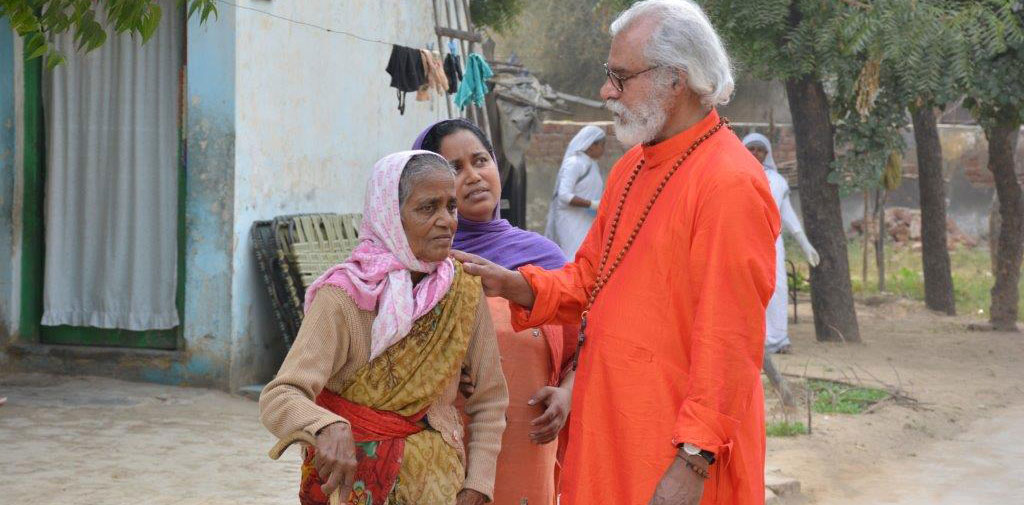
However, Yohannan emphasizes the importance for Christ followers to provide practical assistance for widows and their children.
“God judged Israel because they did not care for the poor and suffering,” Yohannan says. “The Body of Christ is responsible to care for them. We must do everything we can to alleviate suffering and do whatever it takes to help people who are forsaken in their own communities.”
Obeying God’s command to take care of widows, Gospel for Asia (GFA) supports workers dedicated to ministering to widows all across Asia.
In 2017, Gospel for Asia (GFA) helped provided free health care training to 289,033 women, taught 50,624 illiterate women how to read and write, provided vocational training to 10,965 women desperately in need of a job, and gave out 8,763 sewing machines to vocational graduates, many of whom are widows struggling to survive. So, while widows worldwide face tragedy and discrimination, some are finding hope and a future through help from organizations like Gospel for Asia.
To conclude on a positive note, here is a letter written by Dr. K.P. Yohannan to friends and donors of Gospel for Asia (GFA) about one widow’s journey from despair to joy:
When Kaavya’s husband died as a result of his alcohol addiction, she had to work hard as a daily wage laborer to feed her six children and look after her household. No one helped her because she lived in a society where people believed it is the wife’s fault if her husband dies before she does—regardless of the circumstances. In essence, she and her children were abandoned.
Kaavya and her children lived in a small, old hut, and life was a constant struggle for survival…
To read more on the plight of widows worldwide on Missions Box, go here.

